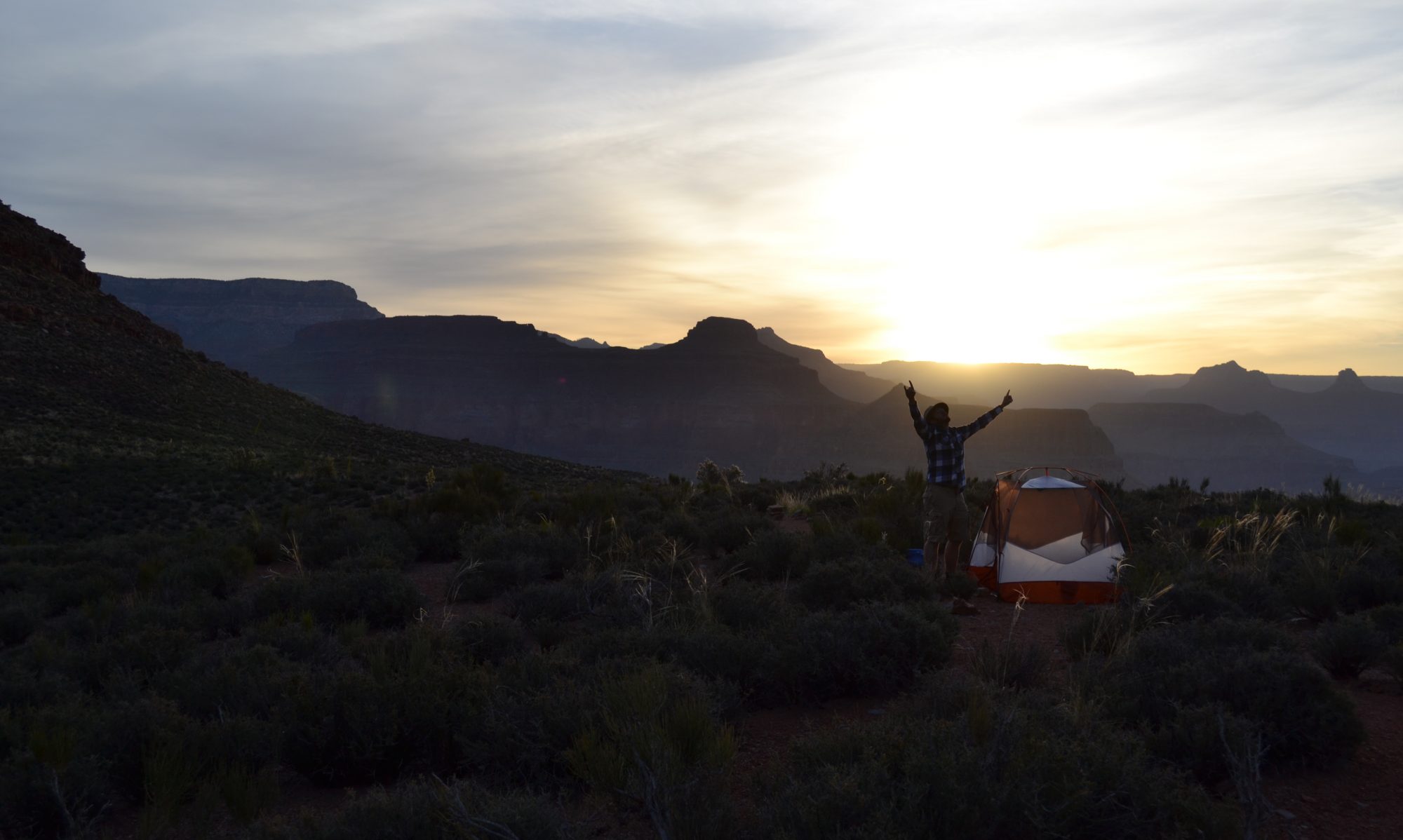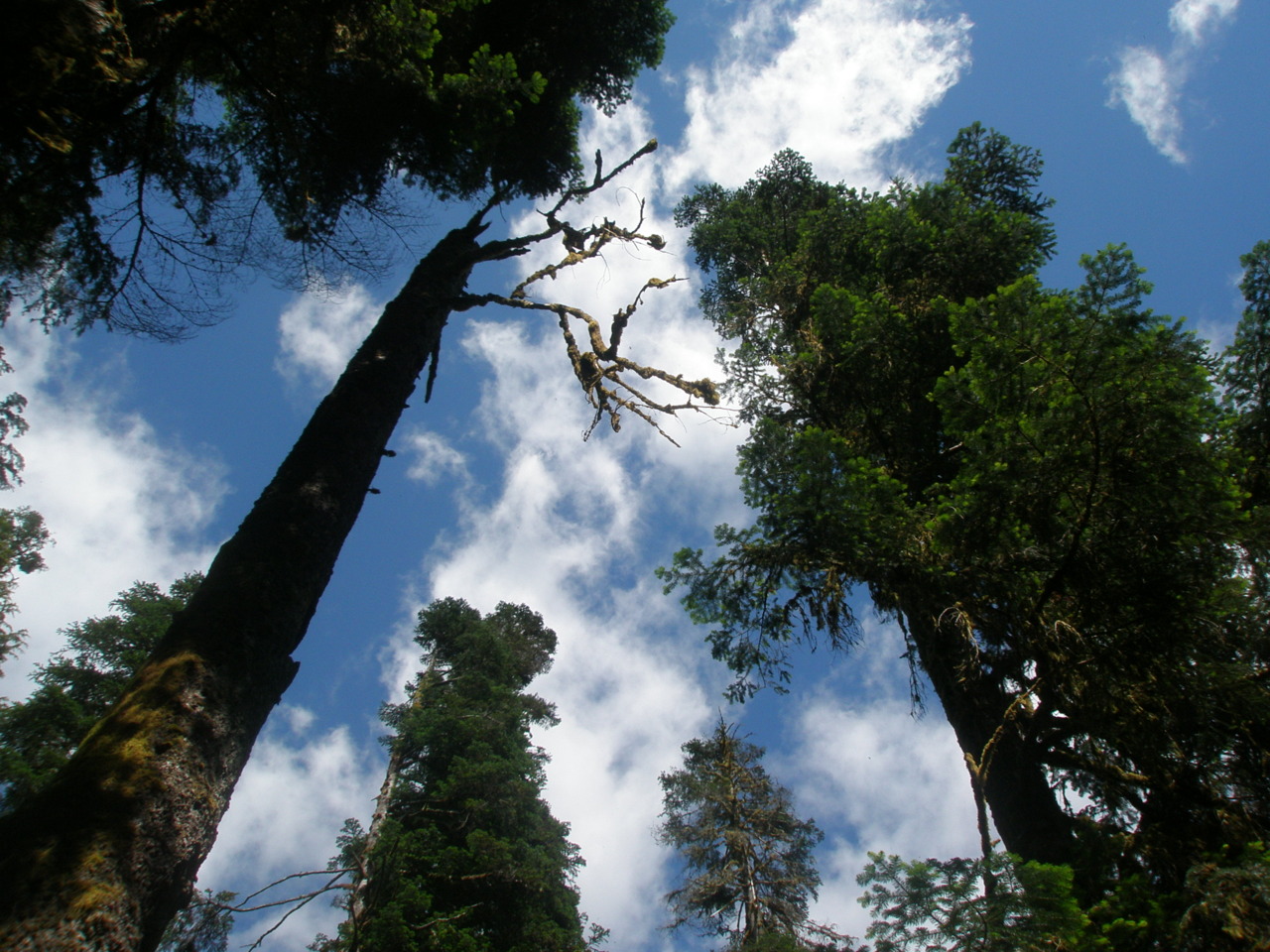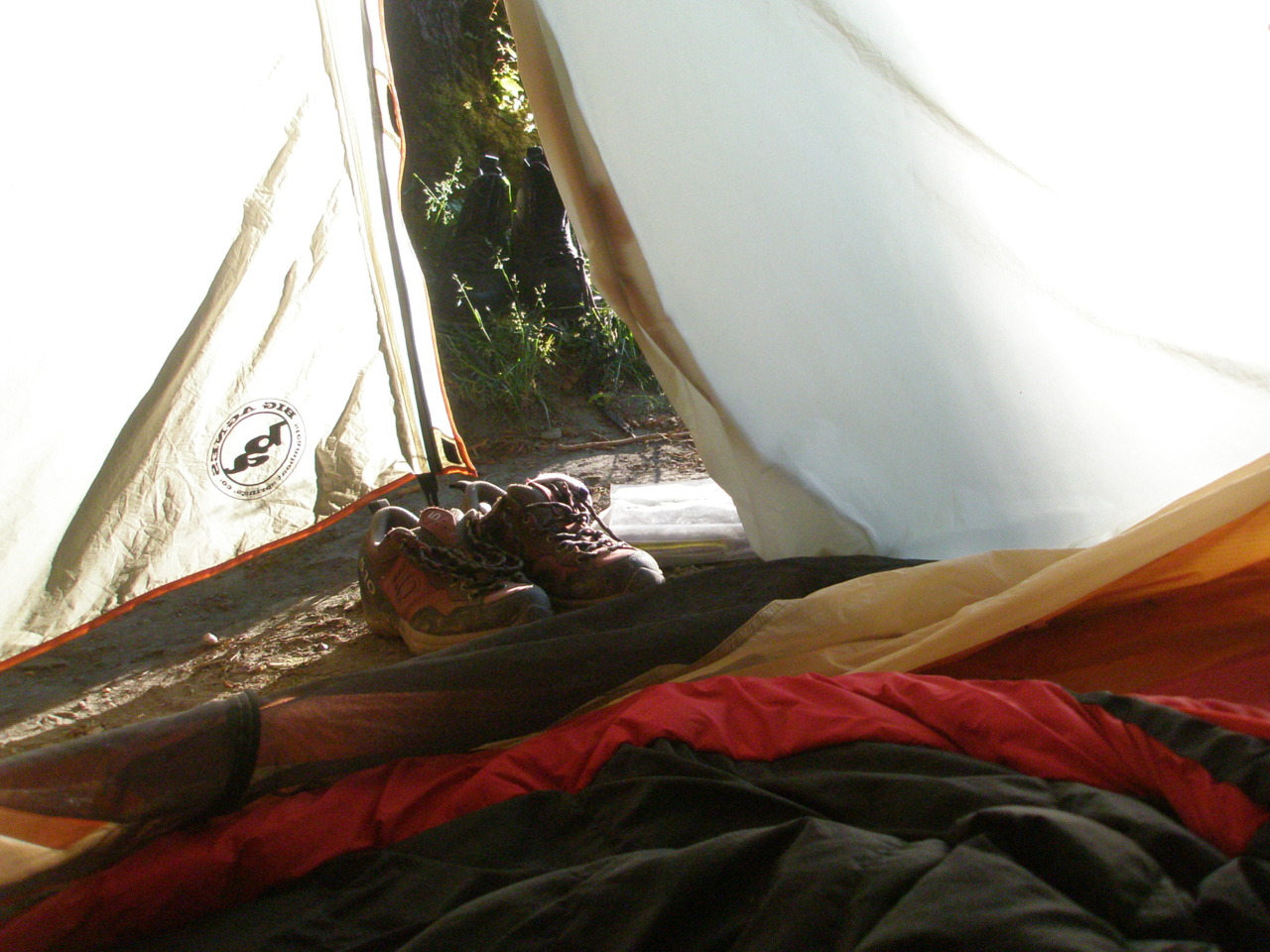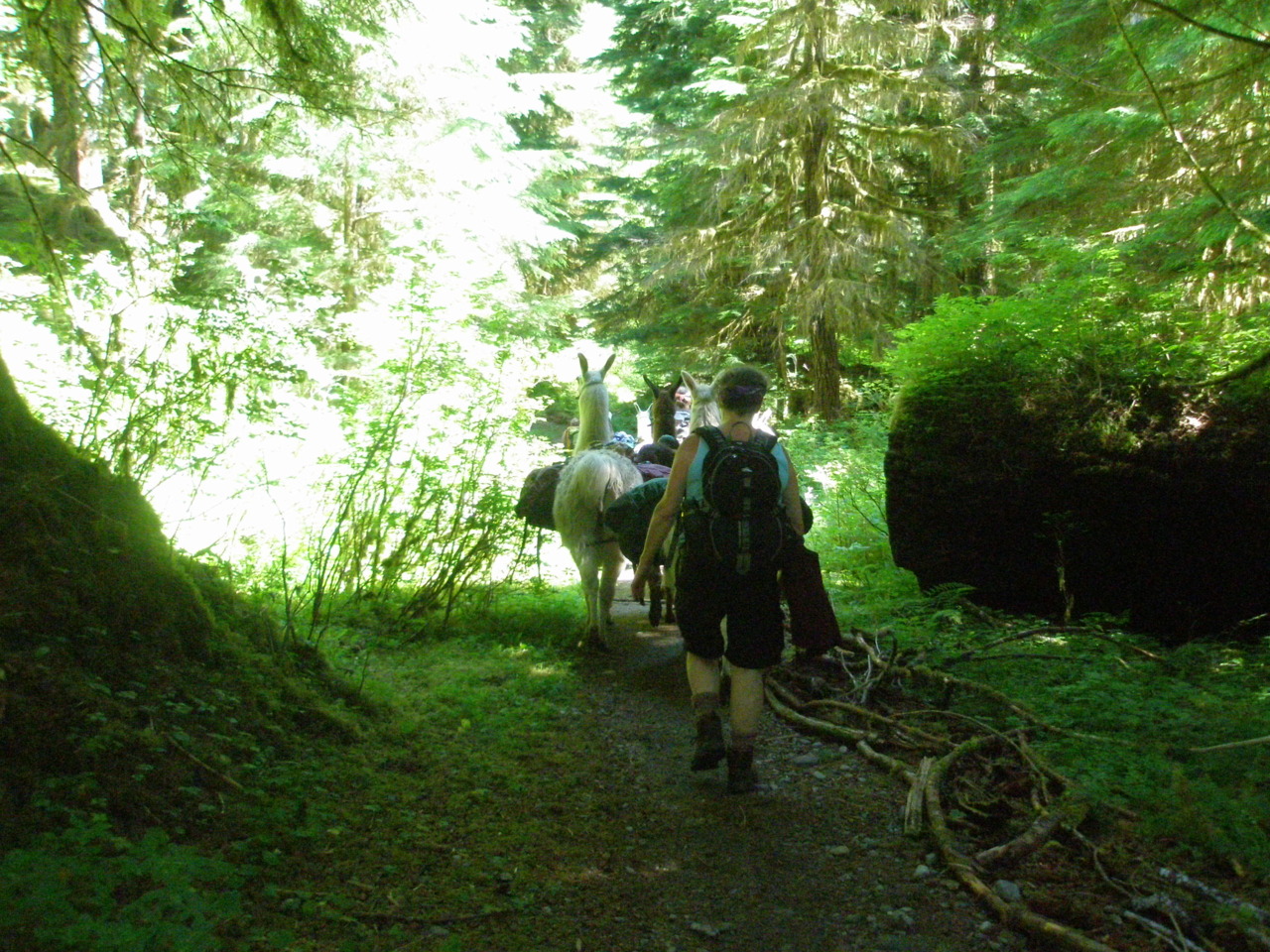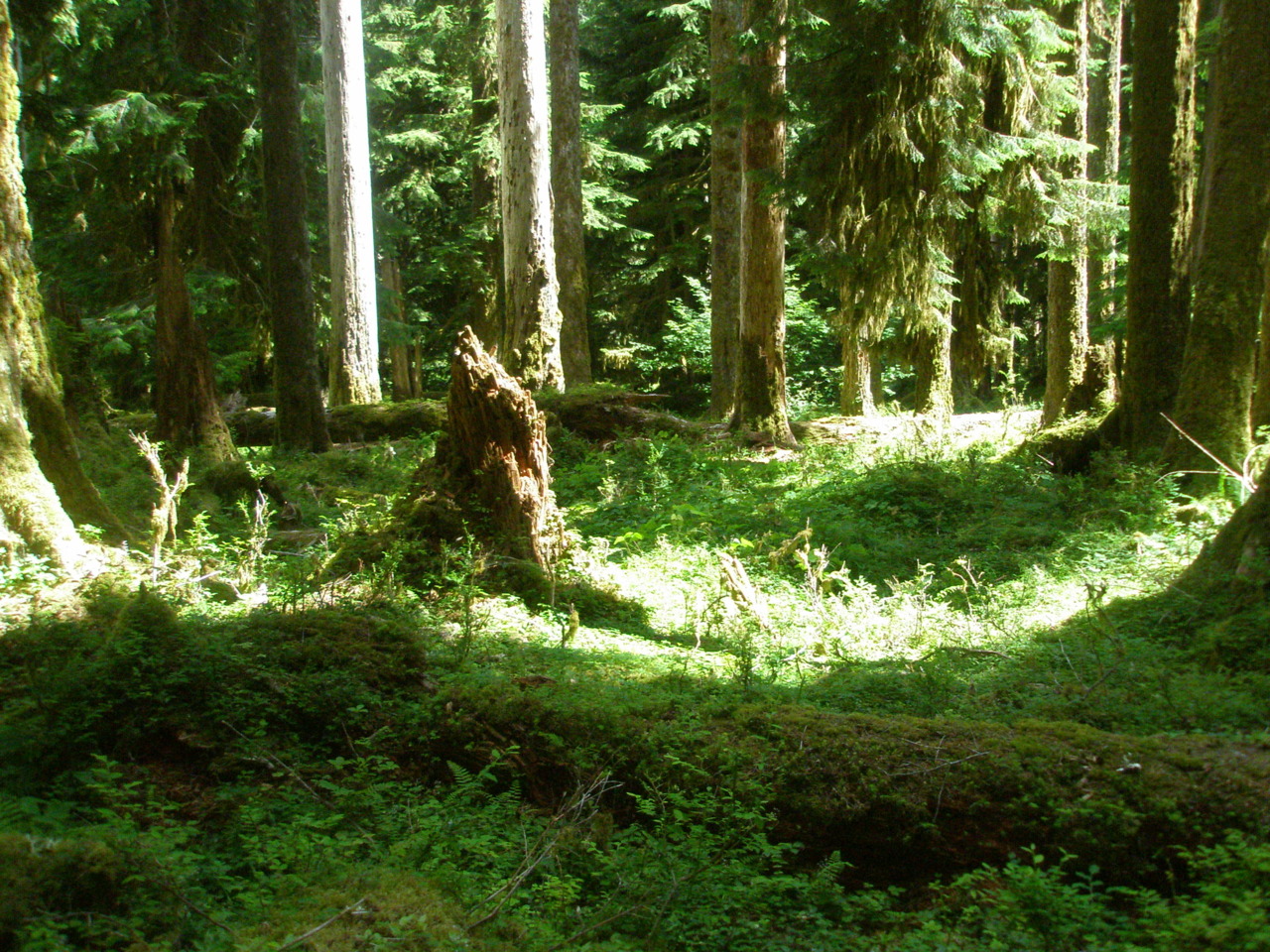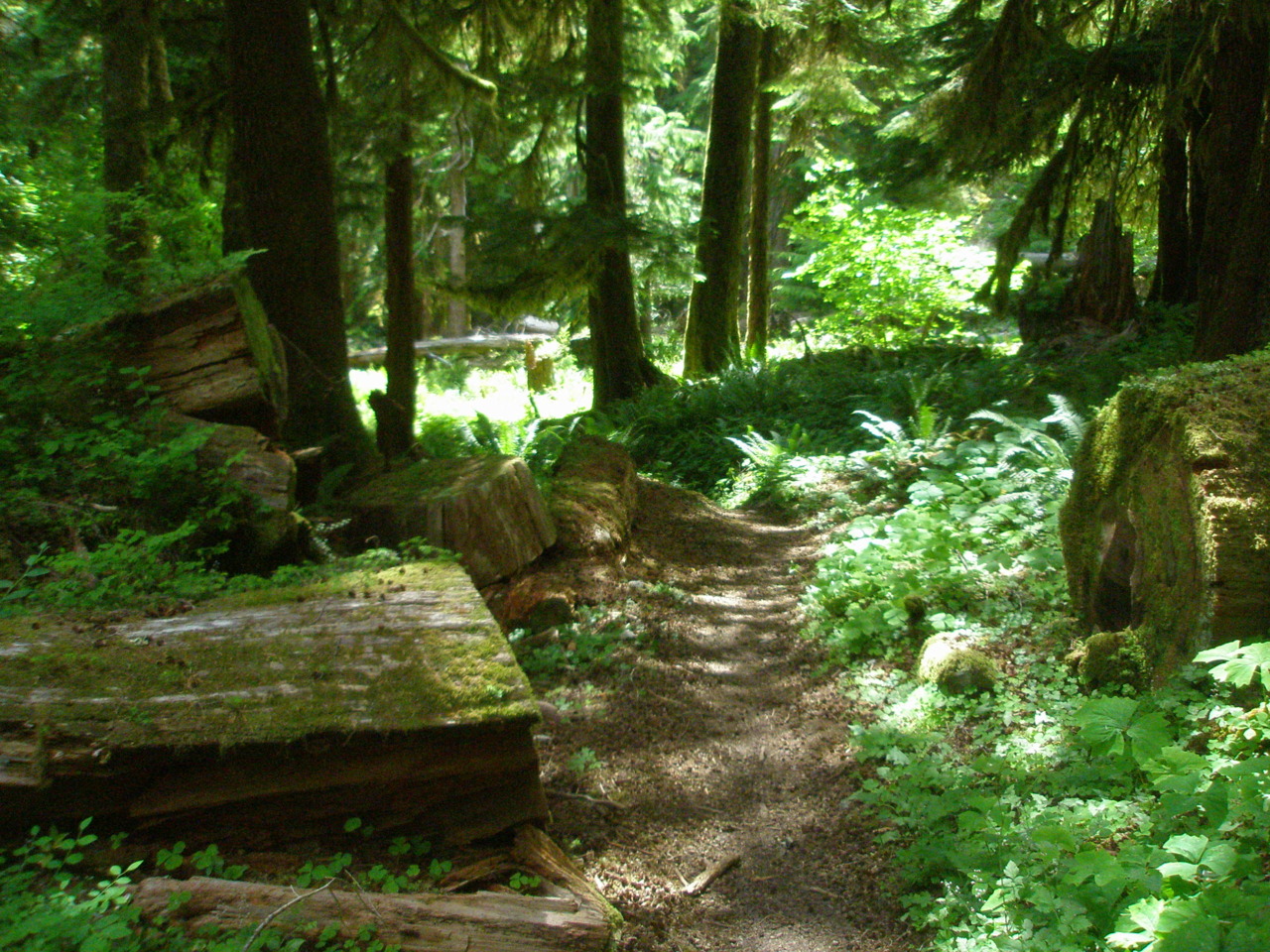Backpacking 7/22
To create a better predicting model of climate change effects, half of our data was supposed to come from transitional streams (snow-melt) and not just the rain dominated streams we had worked on up to this point. Unfortunately, though heavy rains prevented us from surveying a few streams, the 150-200% snowpack throughout much of the Pacific Northwest this year prevented us from reaching let alone surveying a lot of these transitional basins. But now, in mid-July, the point when most snow would have melted, we decided to test the waters.
After backpacking several miles, loaded with survey equipment and enough personal gear for several days, we reached our destination: waters too high and too swift for us to cross. We had just lost two days of work. Lost is probably the wrong term, it was good that we had tried, we just didn’t get any data out of it.
We spent the rest of the day going on a small hike, reading academic papers (I read one that happened to be co-authored by a W&M prof!), and taking naps on logs in our sleeping bags (ok that was just me…but it was nice). The woods are beautiful here. The trees creak with age, covered in layers of moss that make the forest floor seem almost like a bed. The light filtered through the trees dances in wonderful patterns across the ground, changing the meaning of the landscape as the day moves on.
The next day, I woke up at the same time as Jaime and ate my bagel breakfast on a nearby log. Jaime was looking wearily toward the guys’ tent that had yet to stir. I grinned happily, marched over, grabbed the rainfly, and started shaking the entire tent, saying, “Boys…wake uuuupppp!” It took them a second to realize it was my voice, but when they did, they were out of there quickly. It’s sad when I beat anyone waking up – and this is the only occurrence of the whole summer. On our way out, as I was questioning why I found it enjoyable to carry so much weight on my back and tromp around the wilderness, we ran into a herd of pack llamas. A group of maybe twenty elderly people split between the back and front ambled briskly with walking sticks while the llamas trudged down the trail in single file carrying all their stuff. We stood to the side patiently waiting for them to pass, staring in awe and wondering if the grant money would pay for llamas on our next hike. Probably not.
